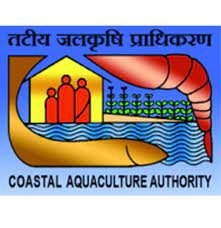Govt passes Coastal Aquaculture Authority (Amendment) Bill, 2023
Amendment Act enables lakhs of small marginal aquaculture farmers to avoid possible need for obtaining Coastal Regulation Zone (CRZ) clearances from multiple agencies.
The Coastal Aquaculture Authority (Amendment) Bill, 2023 passed by both Houses of the Parliament of India. The Government intends to reiterate that the coastal aquaculture and activities connected therewith are permitted activities within the (Coastal Regulation Zone) CRZ under the CRZ notifications. The Amendment Bill provides that the registration granted under Coastal Aquaculture Authority Act shall prevail and be treated as valid permission under CRZ Notification with the express intention of enabling lakhs of small marginal aquaculture farmers to avoid the possible need for obtaining CRZ clearances from multiple agencies.
Specific exemption has been granted under the CAA Act, through this amendment for the establishment of aquaculture units like hatcheries, Brood stock multiplication centres (BMC) and Nucleus Breeding Centres (NBC) within the No Development Zone (NDZ) [200m from the HTL] of Coastal Regulation Zone (CRZ).
The principal Act has a provision of imprisonment for a period up to 3 years for carrying out coastal aquaculture without registration. This appears to be a very harsh punishment for an offence of purely civil nature and hence the amendment bill replaces the same with suitable civil instruments such as penalty in line with the principle of decriminalizing civil transgressions.
The Amendment Bill provides for broad basing “coastal aquaculture” to comprehensively cover all activities of coastal aquaculture under the purview of this Act and to remove the ambiguity existing in the Principal Act between the farm and other verticals of coastal aquaculture. This is likely to ensure that no coastal aquaculture activity is left out of the ambit of the Act and operate in an environmentally hazardous manner.
The Government intends to promote ease of doing business in coastal aquaculture by fine tuning some of the operational procedures of Coastal Aquaculture Authority. The present amendment provides for effecting changes to the certificate of registration in case of changes in ownership or size of the activity and for providing new certificate in case of mutilation, damage or loss of certificate etc. It also provides for condoning the delay in applying for renewal of registration with compounded fee which was absent in the principal Act.
The Amendments expressly empower the Authority to appoint Committees which can contain experts, stake holders and public representatives for the efficient discharge of its duties and performance of its functions under Act.
Disease prevention is key to success of coastal aquaculture. Hence, Government intends to create facilities that produce genetically improved and disease-free stocks for use in coastal aquaculture. Such facilities, that is Hatcheries, Brood stock Multiplication centers and Nucleus Breeding Centers can be established only in areas having direct access to seawater and the Government intends to enable and facilitate them. Simultaneously, Government also intends to prevent use of antibiotics and pharmacologically active substances in coastal aquaculture by making express provisions in the Act.
Government envisages introducing global best practices such as mapping and zonation of aquaculture areas, Good Aquaculture Practices, quality assurance and safe aquaculture products, and to facilitate ease of doing business without diluting the core principles of environment protection through introducing suitable provisions in the Act. These will promote production and productivity, traceability, increased competitiveness and entrepreneurship along the value chain and exports in coastal aquaculture sector in a sustainable manner and will lead to sustained raise in incomes and employment in rural areas along the coast.
The Amendment Bill has new provisions for empowering the Coastal Aquaculture Authority to better regulate the activities connected with coastal aquaculture for coastal environment compliance. The amendment bill provides for fixing or adopting the standards for emission or discharge of effluents from coastal aquaculture units, making the owner liable to pay the cost of demolition and cost of damage to the environment, if any, as assessed by the Authority in the true spirit of Polluter Pays Principle and prohibits coastal aquaculture in the ecologically sensitive areas or the geo-morphological features.
Amendment Act enables lakhs of small marginal

